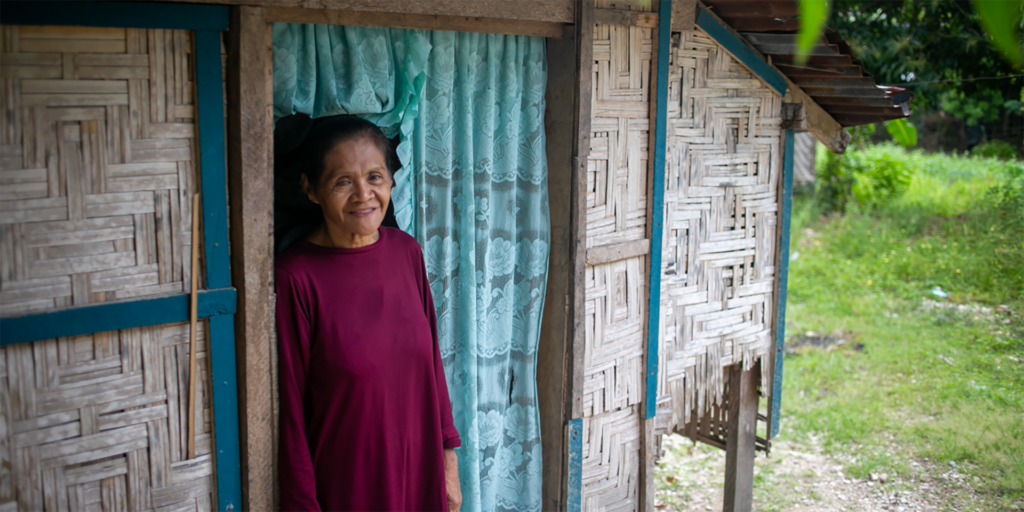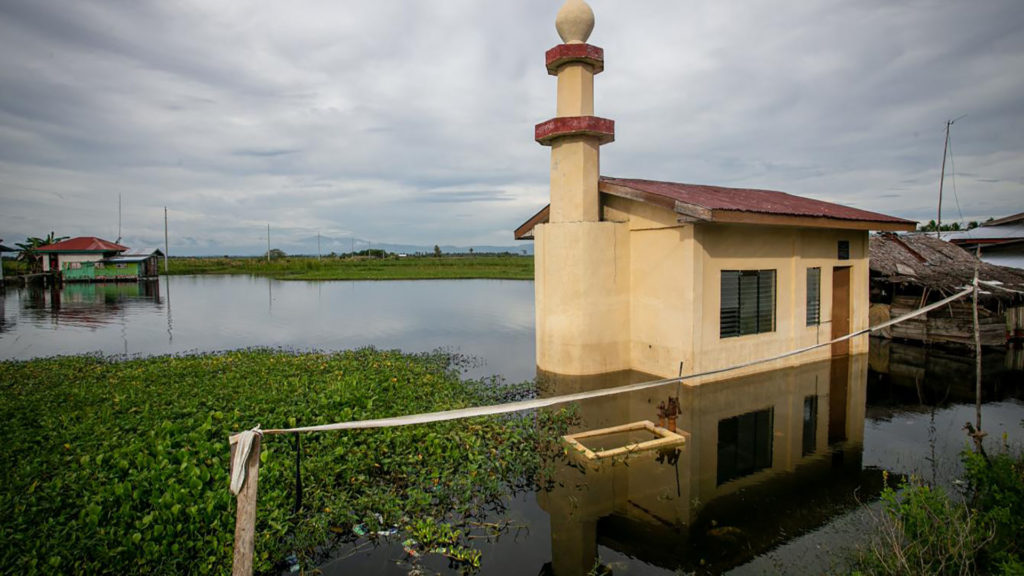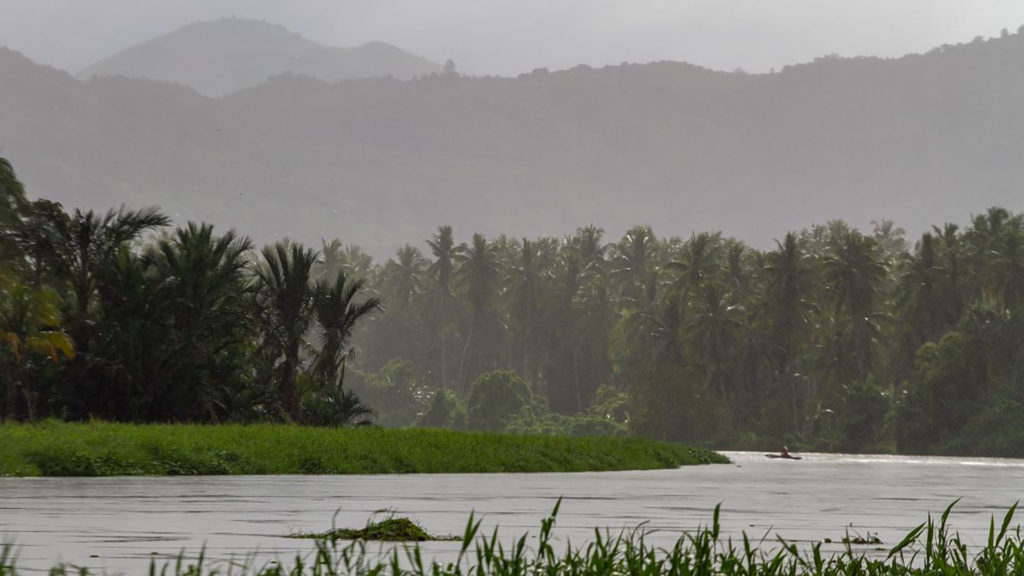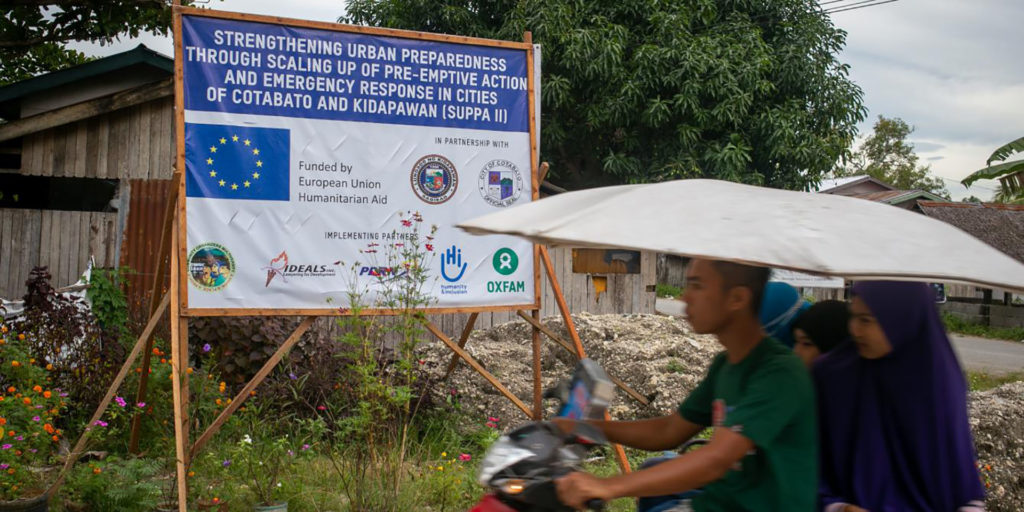Sixty-one-year-old Babu Baikan Tumindeg spent at least 10 years working as an overseas Filipino worker (OFW) in Qatar. She was on vacation in her hometown of Cotabato City when fate played a cruel joke on her.
In late 2019, she lost her right eye to diabetes, a condition that prevented her from going back to her employer. She fears that it will soon affect her remaining good eye.
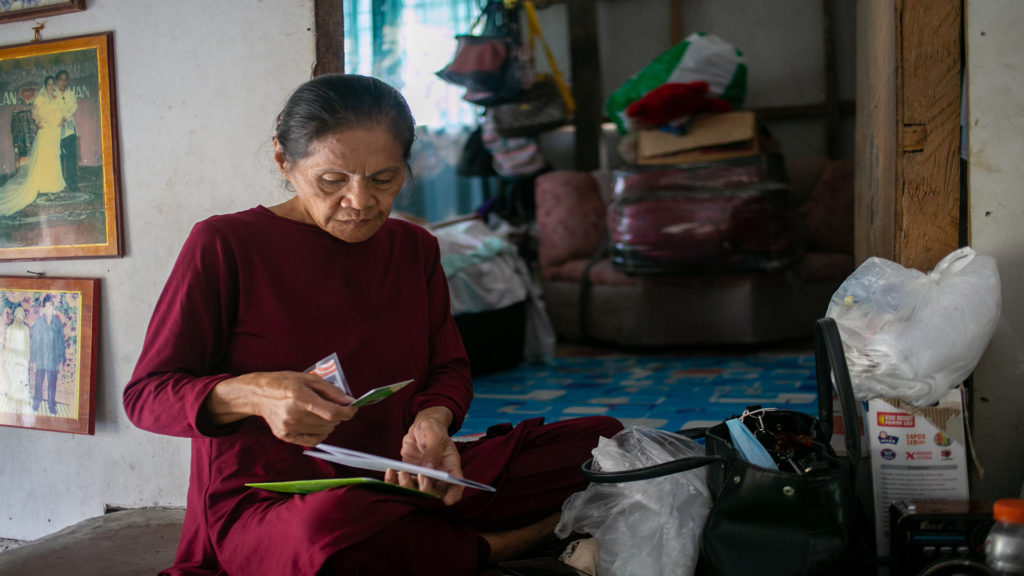
Despite her disability, Babu Baikan remains optimistic and quite independent as she lives alone in a house just a stone’s throw away from the Tamontaka River, which regularly causes flooding during heavy rainfall.
Her meager savings from working abroad is now depleted. Because of this, she qualified — as one of the 300 poorest residents in Barangay Tamontaka 3 – for the Strengthening Urban Preparedness through Pre-emptive Action (SUPPA) project.
SUPPA, which is funded by the European Union Civil Protection and Humanitarian Aid Operations (ECHO), is jointly implemented by Oxfam Pilipinas, Initiatives for Dialogue and Empowerment through Alternative Legal Services, Inc. (IDEALS, Inc.), People’s Disaster Risk Reduction Network, Inc. (PDRRN) and Humanity & Inclusion.
Instead of receiving assistance after a calamity strikes, SUPPA project participants receive cash assistance days before flooding is expected to happen. In the case of Babu Baikan’s village, the release of the cash assistance is triggered by the rising water level in the Tamontaka River and its tributaries.
Flood warning signals are placed in strategic areas of the village to inform residents. The warning color levels are yellow for subaybay (monitor), orange for alerto (alert) and red for likas (evacuate).
Once it reaches the orange warning, project participants receive the allotted amount through a cash card from Paymaya.
This anticipatory action mechanism is meant to ensure that residents can safely evacuate their homes and prepare for emergency even before the disaster happens. Similar pilot projects have shown that pre-disaster assistance can save more lives and hasten the recovery of highly at-risk communities in Mindanao.
Babu Baikan described the project as novel, since SUPPA does not wait for a disaster to strike before giving aid to the vulnerable population.
“We receive the cash assistance ahead of a calamity, which allows us to buy the things we need in preparation for the disaster,” she said.
Babu Baikan received P5,000 the first time the emergency fund was triggered. She used the amount to buy food, other household needs, and maintenance medicine for her hypertension.
Because the residents have the freedom to decide how to spend the cash assistance, she set aside the remaining amount as savings for another rainy day.
As she started saving money again, she was inspired to start a business.
She cooked “pastil” — a popular Moro dish of steamed rice topped with shredded beef, chicken or fish and wrapped in a banana leaf — and sold them in the neighborhood.
“I could earn P50 to P100 a day, minus the capital money. That’s a big help for my daily needs,” Babu Baikan said in Filipino.
Although she is already a senior citizen, she prepares the pastil on her own and even goes to the market to pick the best ingredients for her delicacy. Besides supporting herself, she sometimes sends money to her children who already have their own families.
Unfortunately, her poor vision has worsened because of diabetes, prompting her to temporarily stop her business.
She hopes to one day have her eyes treated. In the meantime, she remains thankful to the SUPPA project, which continues to support their community not only through cash assistance but also disaster preparedness training and capacity building.
“I am grateful to Allah because of the financial help that I am receiving from the SUPPA project,” said Babu Baikan, who has so far received a total of P12,000 from the program.
SUPPA combines innovative approaches through the use of impact-based and risk forecasting models that enable anticipatory assistance, including pre-disaster cash transfers via a Sharia-compliant digital financial platform.
